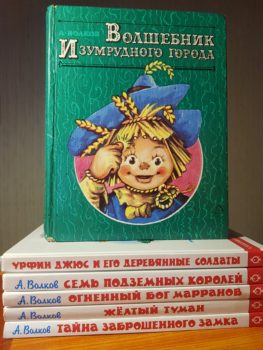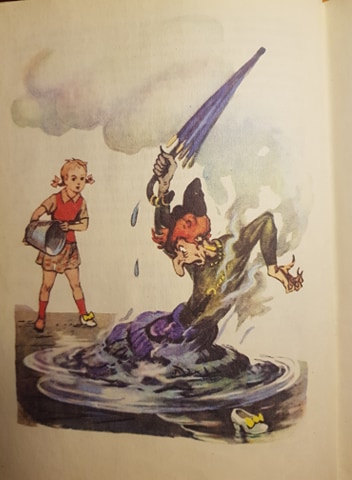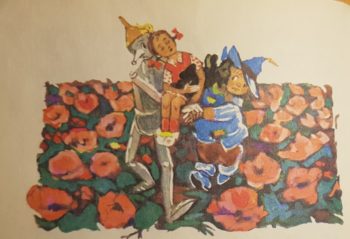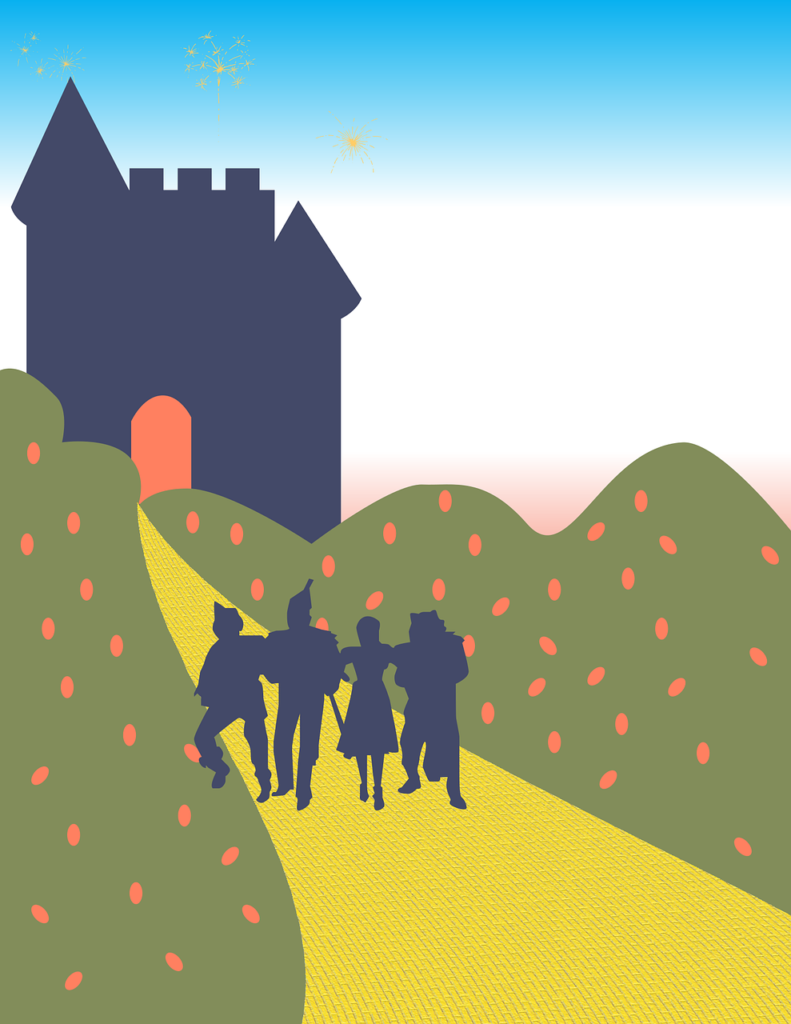We’re not in Kansas anymore Posted by bota on Sep 4, 2020 in Culture, Soviet Union
Somewhere between me reading Greek myths and then diving headfirst into The Chronicles of Narnia, I remember being perfectly lost in the lore of the “Волше́бная Страна́” (Magic Land) created by the great Soviet author Alexander Volkov (Александр Во́лков).
You might be thinking, Volkov who? Fear not, my friend, for I’m here to tell you all about the genius man who drew inspiration from Frank Baum’s The Wonderful Wizard of Oz and created «Волше́бник Изумру́дного Го́рода» (The Wizard of the Emerald City) and other stories as part of “Волше́бная Страна́” (Magic Land). This classic Soviet fantasy-epos has and will continue to help young readers fall in love with adventure, the magic of reading, and books.
First, let’s talk about the author. I was pleasantly surprised to learn that Alexander Volkov (1891) was мой земля́к (my fellow countryman), born and raised in an eastern city in Kazakhstan called Усть-Каменого́рск (Ust-Kamenogorsk). Back then Kazakhstan was still part of the Soviet Union. Volkov’s first connection with Baum’s Wizard of Oz happened out of the author’s natural affinity for languages and translation. He was learning English and while reading Baum’s story he would translate and re-tell it to his two sons. The translation was finished within two or three weeks in December of 1936 and later sent to Samuil Marshak, one of the most famous Russian authors who wrote for children. With Marshak’s blessing, «Волше́бник Изумру́дного Го́рода» was published in 1939; the first edition of the story was accompanied by black and white illustrations by Nikolai Radlov. Volkov’s characters were somewhat consistent with those of Baum yet already part of their own reality: Dorothy was now Элли (Ellie), the Scarecrow went by the name Страши́ла (Strashila), the Tin Man – Желе́зный Дровосе́к (The Iron Lumberjack), The Cowardly Lion – Лев (Lion), and Toto changed to the familiar Russian diminutive Тото́шка (Totoshka).
The first book was republished (and also rewritten) multiple times. The 1959 edition, considered the classic among the published versions, has illustrations by Leonid Vladmirsky. The old green book on the photo below is the one I grew up with (with the said 1959 illustrations). The other six books on the photo were printed in 2018 and later bought for my siblings:
«Урфин Джюс и его́ деревя́нные солда́ты» (Urfin Joos and his Wooden Soldiers, 1963)
«Семь подзе́мных короле́й» (The Seven Underground Kings, 1964)
«О́гненный бог Марра́нов» (The Fiery God of the Marrans, 1968)
«Жёлтый тума́н» (The Yellow Fog, 1970)
«Та́йна забро́шенного за́мка» (The Secret of the Deserted Castle, 1982)
There are a number of other Russian authors who contributed to the universe created by Volkov. The Magic Land wiki fandom page is a great reference of their works. I should add that while Baum’s Wizard of Oz is considered by many to be a political satire on the early 20th century America, Volkov’s Magic Land and its inhabitants are under less scrutiny and is viewed only as a children’s classic. Volkov, who died on July 3 in 1977 at the age of 86, will always be remembered as someone who gave generations of children a magical reading adventure. To the Soviet reader, especially someone who grew up with Volkov’s characters, the books are so much more than a re-narration. Re-imagining at first – yes, but the success of Volkov’s series is what today’s youth would compare to a work of fanfiction that gained triumphant momentum and stayed there, allowing new voices to live in that world.
So, if you are a fan of Baum’s book The Wizard of Oz or the 1939 live-action film, I hope you decide to pick up Volkov’s stories too (for they have been translated into English, among other languages). And if you, like I, grew up on reading «Волше́бник Изумру́дного Го́рода», here is one of my favorite quotes from the book by which we ought to remember Volkov:
«Вспомина́йте обo мне, но не сли́шком грусти́те: грусть вреди́т пищеваре́нию» (“Remember me, but don’t be too sad: sadness harms your digestion”).

Build vocabulary, practice pronunciation, and more with Transparent Language Online. Available anytime, anywhere, on any device.








